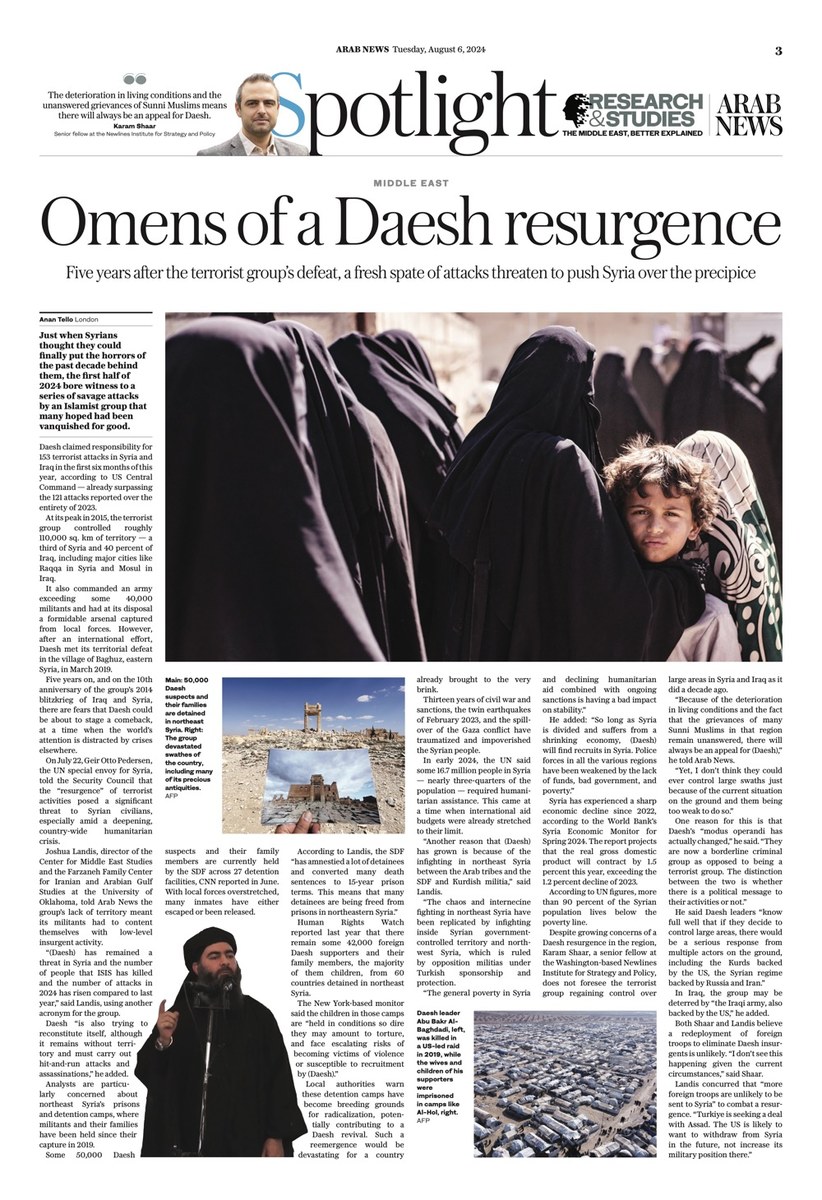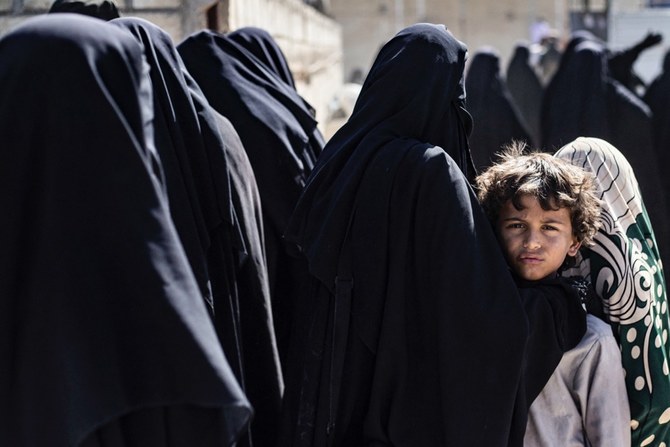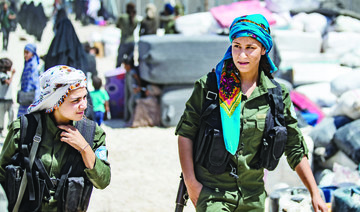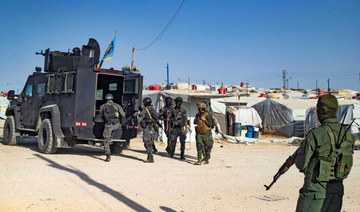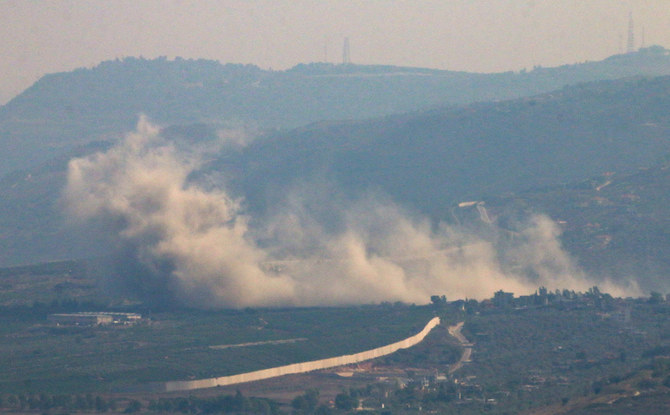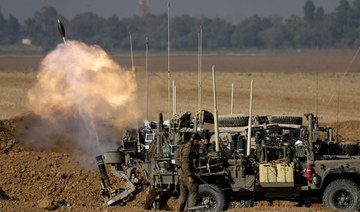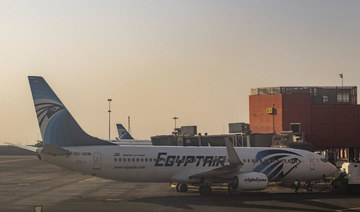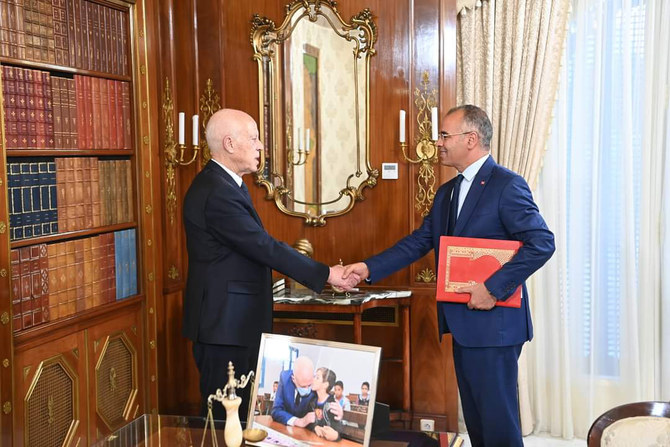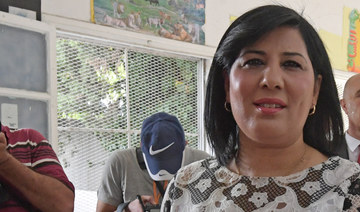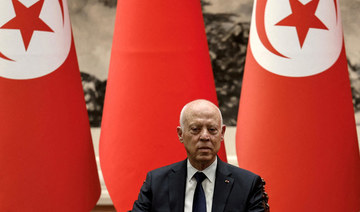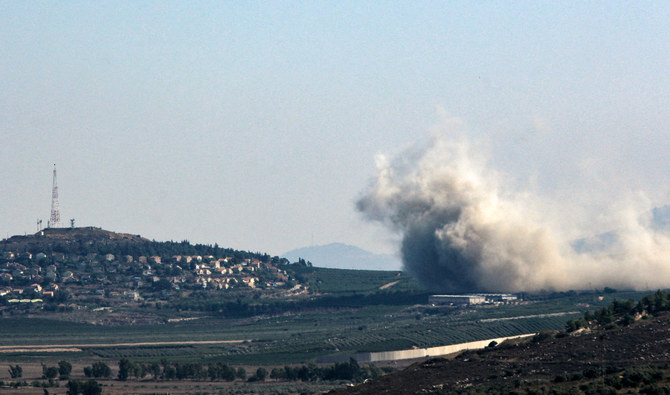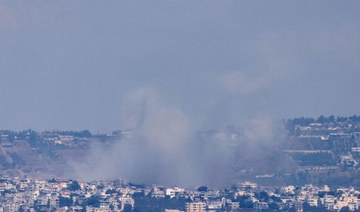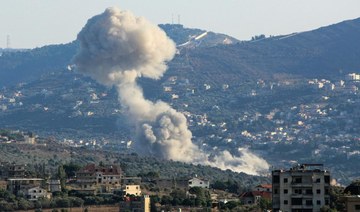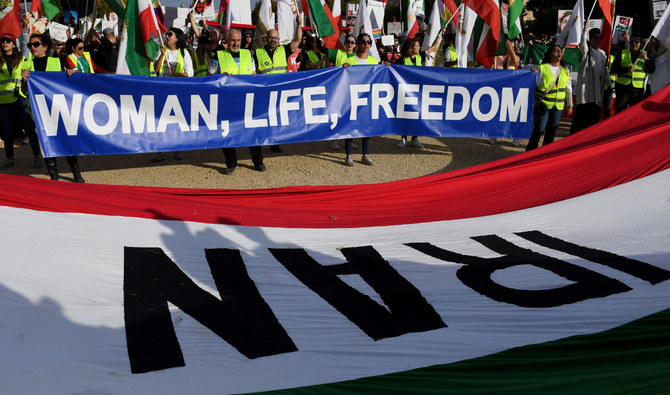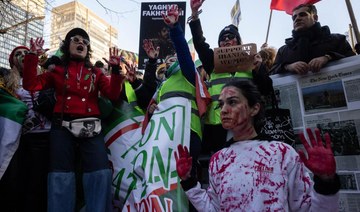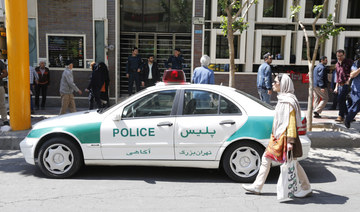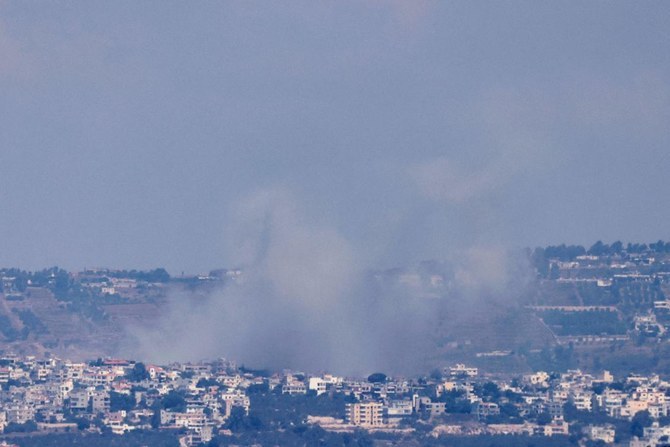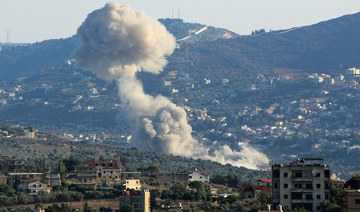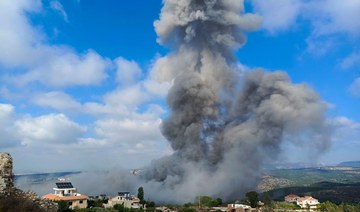LONDON: Just when Syrians thought they could finally put the horrors of the past decade behind them, the first half of 2024 bore witness to a series of savage attacks by an Islamist group that many hoped had been vanquished for good.
Daesh claimed responsibility for 153 terrorist attacks in Syria and Iraq in the first six months of this year, according to US Central Command — already surpassing the 121 attacks reported over the entirety of 2023.
At its peak in 2015, the terrorist group controlled roughly 110,000 sq. km of territory — a third of Syria and 40 percent of Iraq, including major cities like Raqqa in Syria and Mosul in Iraq, according to the Global Coalition to Defeat Daesh.
It also commanded an army exceeding some 40,000 militants and had at its disposal a formidable arsenal captured from local forces. However, after an international effort, Daesh met its territorial defeat in the village of Baghuz, eastern Syria, in March 2019.
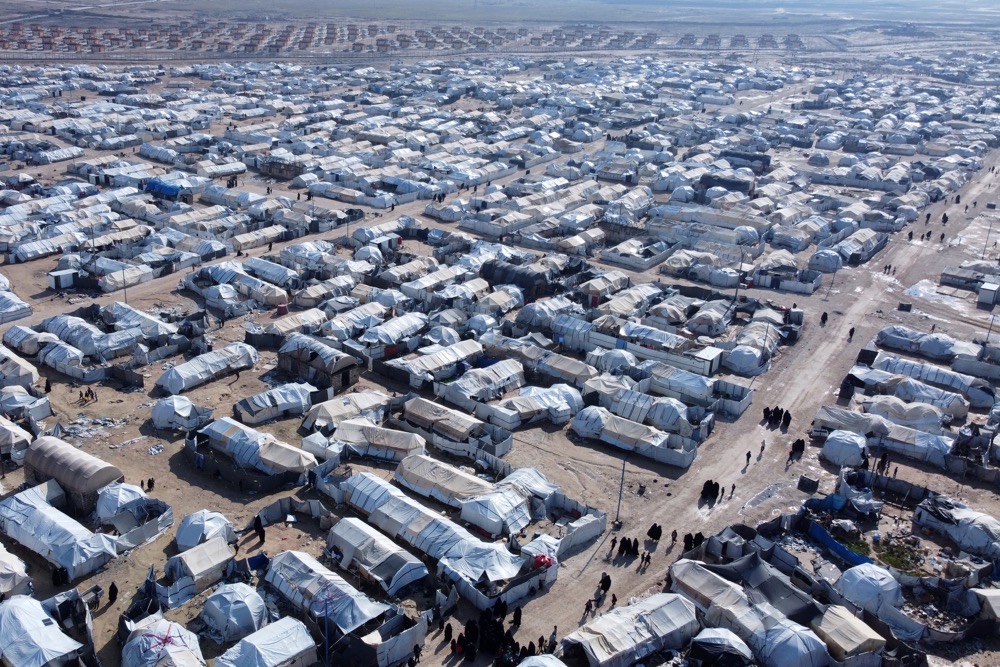
Al-Hol camp in Syria's northeastern Al-Hasakah Governorate. (AFP/File)
Five years on, and on the 10th anniversary of the group’s 2014 blitzkrieg of Iraq and Syria, there are fears that Daesh could be about to stage a comeback, at a time when the world’s attention is distracted by crises elsewhere.
On July 22, Geir Otto Pedersen, the UN special envoy for Syria, told the Security Council that the “resurgence” of terrorist activities posed a significant threat to Syrian civilians, especially amid a deepening, country-wide humanitarian crisis.
Highlighting that Syria “remains in a state of profound conflict, complexity and division,” he said the country is “riddled” with armed actors, listed terrorist groups, foreign armies and front lines.
Joshua Landis, director of the Center for Middle East Studies and the Farzaneh Family Center for Iranian and Arabian Gulf Studies at the University of Oklahoma, told Arab News the group’s lack of territory meant its militants had to content themselves with low-level insurgent activity.
“(Daesh) has remained a threat in Syria and the number of people that ISIS has killed and the number of attacks in 2024 has risen compared to last year,” said Landis, using another acronym for the group.
Daesh “is also trying to reconstitute itself, although it remains without territory and must carry out hit-and-run attacks and assassinations,” he added.
Ian J. McCary, deputy special envoy for the Global Coalition to Defeat Daesh, confirmed in March that the threat of Daesh continued to lurk in Syria and Iraq.
“We continue to see a real threat in Iraq and Syria, where ISIS at one point controlled a region with a population of approximately 10 million people,” he told the Washington Institute.
“We have seen the emergence of ISIS affiliates — the so-called ISIS Khorasan inside Afghanistan, which poses a clear external threat — and in Sub-Saharan Africa where several ISIS affiliates have emerged.”
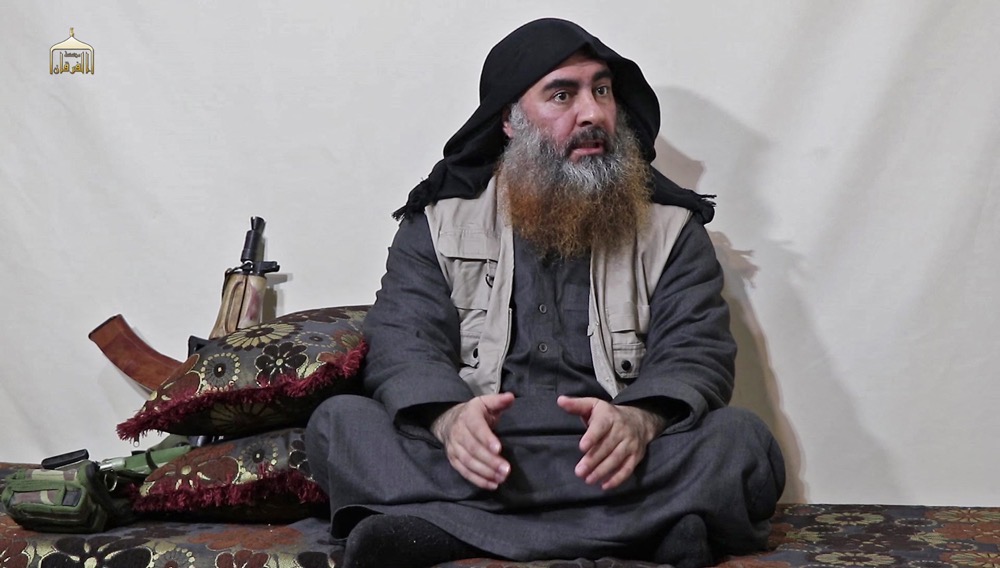
Daesh leader Abu Bakr Al-Baghdadi. (AFP/File)
Established in early 2015 as the regional branch of Daesh in South-Central Asia, the Islamic State — Khorasan Province, also known by the acronym IS-K, initially focused on transferring fighters from Afghanistan and Pakistan to Syria, according to the Warsaw-based Center for Eastern Studies.
The group has a history of attacks that extended far beyond Afghanistan, including one that targeted the Crocus City Hall in Russia’s capital Moscow on March 22 this year, killing at least 133 people and injuring more than 100.
In January, IS-K also claimed responsibility for twin blasts in Iran that killed at least 100 people and injured 284 more during a memorial for the slain Quds Force commander Qassem Soleimani.
In Syria, the group has staged attacks in central and northeastern Syria, targeting both the armed forces of the Bashar Assad regime and the US-backed Syrian Democratic Forces in the country’s semi-autonomous region.
Throughout much of 2020 and 2021, Daesh sleeper cells in the northeast were building an intelligence network and raising money through theft, extortion and smuggling, according to a 2022 report by the International Crisis Group.
However, analysts are particularly concerned about northeast Syria’s prisons and detention camps, where militants and their families have been held since their capture in 2019.
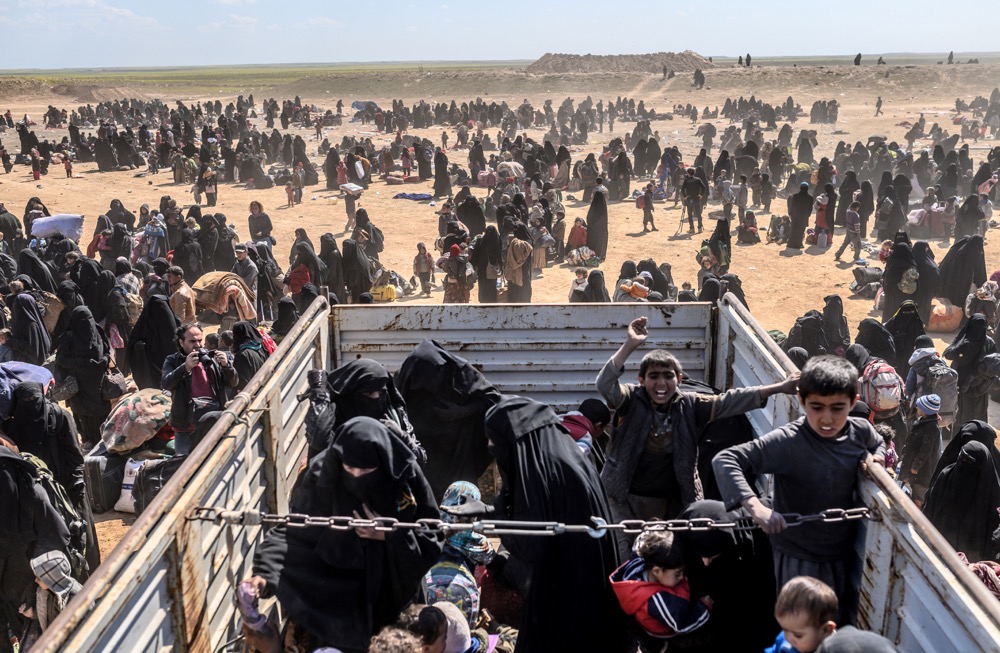
Women and children evacuated from Baghouz, a Daesh holdout in 2019, arrive in Deir Ezzor. (AFP/File)
Some 50,000 Daesh suspects and their family members are currently held by the SDF across 27 detention facilities, CNN reported in June. With local forces overstretched, many inmates have either escaped or been released.
According to Landis, the SDF “has amnestied a lot of detainees and converted many death sentences to 15-year prison terms. This means that many detainees are being freed from prisons in northeastern Syria.”
Human Rights Watch reported last year that there remain some 42,000 foreign Daesh supporters and their family members, the majority of them children, from 60 countries detained in northeast Syria.
The New York-based monitor said the children in those camps are “held in conditions so dire they may amount to torture, and face escalating risks of becoming victims of violence or susceptible to recruitment by (Daesh).”
Local authorities warn these detention camps have become breeding grounds for radicalization, potentially contributing to a Daesh revival. Such a reemergence would be devastating for a country already brought to the very brink.
Thirteen years of civil war and sanctions, the twin earthquakes of February 2023, and the spillover of the Gaza conflict have traumatized and impoverished the Syrian people.
In early 2024, the UN said some 16.7 million people in Syria — nearly three-quarters of the population — required humanitarian assistance. This came at a time when international aid budgets were already stretched to their limit.
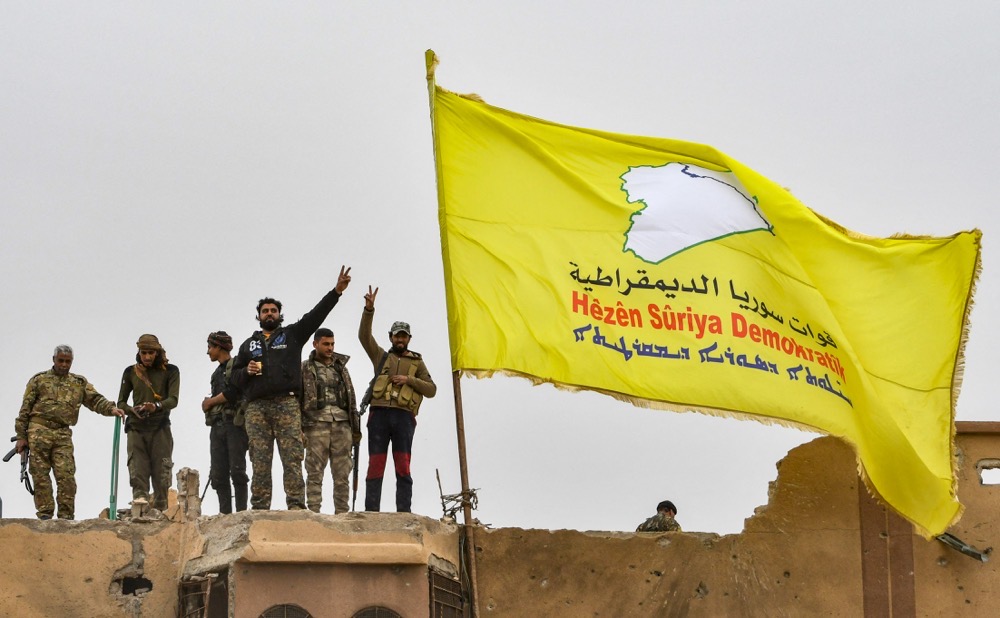
Some 50,000 Daesh suspects and their family members are currently held by the SDF across 27 detention facilities. (AFP/File)
According to a July report by the UN Office for the Coordination of Humanitarian Affairs, the Humanitarian Response Plan for Syria remains significantly underfunded, with just $871 million of its $4.07 billion budget secured as of July 25.
Ramesh Rajasingham, director of the OCHA Coordination Division, described the situation in Syria as the “worst humanitarian crisis since the start of the conflict,” made worse by ongoing clashes among various armed actors in northeast Syria.
“Another reason that (Daesh) has grown is because of the infighting in northeast Syria between the Arab tribes and the SDF and Kurdish militia,” said Landis.
“The chaos and internecine fighting in northeast Syria have been replicated by infighting inside Syrian government-controlled territory and northwest Syria, which is ruled by opposition militias under Turkish sponsorship and protection.
“The general poverty in Syria and declining humanitarian aid combined with ongoing sanctions is having a bad impact on stability.”
He added: “So long as Syria is divided and suffers from a shrinking economy, (Daesh) will find recruits in Syria. Police forces in all the various regions have been weakened by the lack of funds, bad government, and poverty.”
Syria has experienced a sharp economic decline since 2022, according to the World Bank’s Syria Economic Monitor for Spring 2024. The report projects that the real gross domestic product will contract by 1.5 percent this year, exceeding the 1.2 percent decline of 2023.
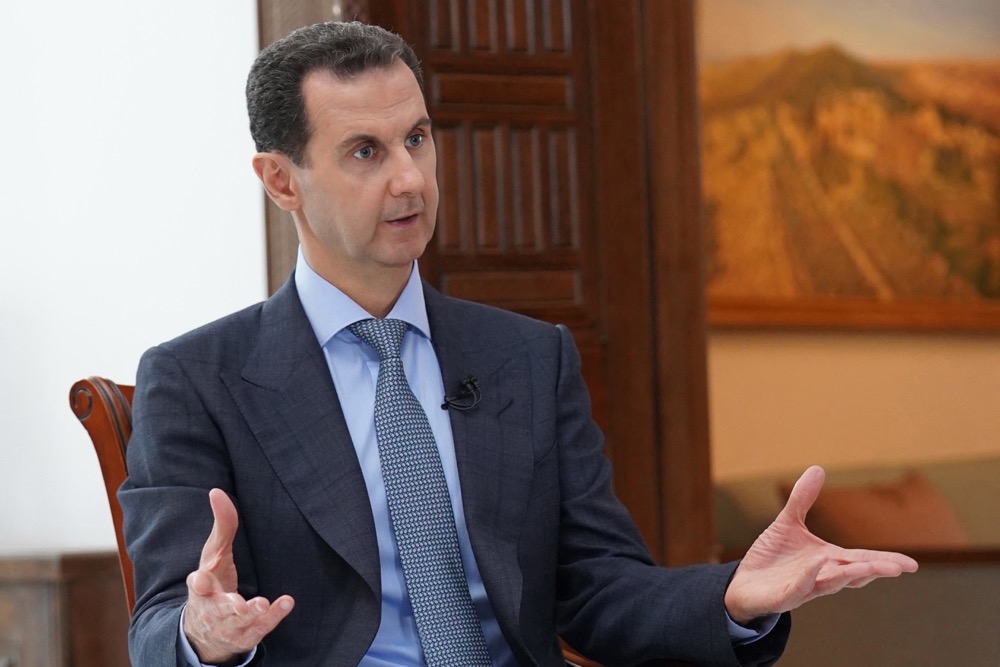
Bashar Assad’s Syria has experienced a sharp economic decline since 2022. (AFP/File)
According to UN figures, more than 90 percent of the Syrian population lives below the poverty line, and more than half lack access to nutritious food, resulting in more than 600,000 children suffering from chronic malnutrition.
Despite growing concerns of a Daesh resurgence in the region, Karam Shaar, a senior fellow at the Washington-based Newlines Institute for Strategy and Policy, does not foresee the terrorist group regaining control over large areas in Syria and Iraq as it did a decade ago.
“Because of the deterioration in living conditions and the fact that the grievances of many Sunni Muslims in that region remain unanswered, there will always be an appeal for (Daesh),” he told Arab News.
“Yet, I don’t think they could ever control large swathes just because of the current situation on the ground and them being too weak to do so.”
One reason for this is that Daesh’s “modus operandi has actually changed,” he said. “They are now a borderline criminal group as opposed to being a terrorist group. The distinction between the two is whether there is a political message to their activities or not.”
He said Daesh leaders “know full well that if they decide to control large areas, there would be a serious response from multiple actors on the ground, including the Kurds backed by the US, the Syrian regime backed by Russia and Iran.”
In Iraq, the group may be deterred by “the Iraqi army, also backed by the US,” he added.
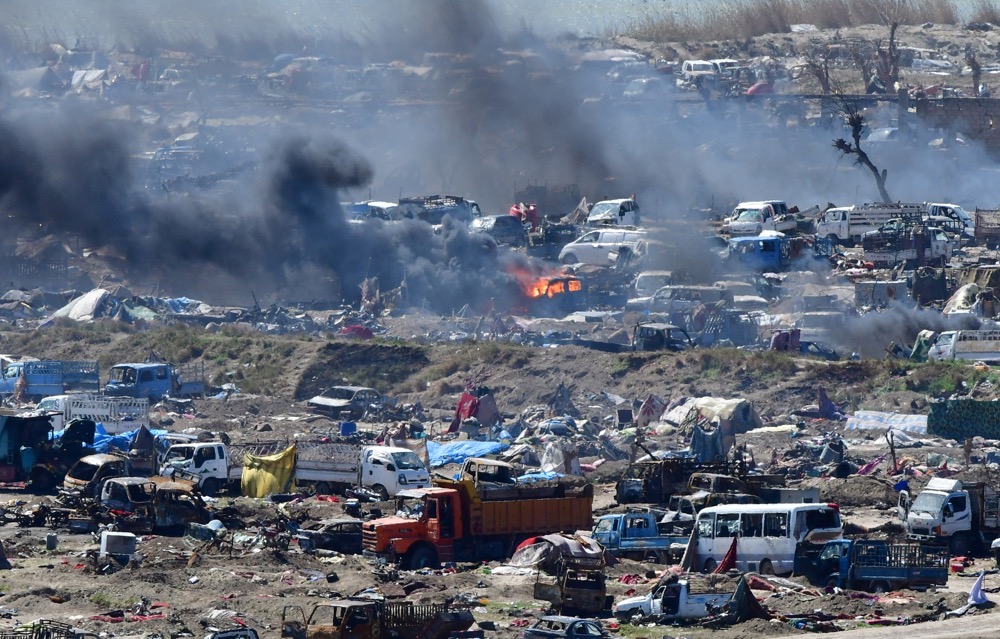
Daesh has targeted both the armed forces of the Bashar Assad regime and the US-backed Syrian Democratic Forces. (AFP/File)
Both Shaar and Landis believe a redeployment of foreign troops to eliminate Daesh insurgents is unlikely. “I don’t see this happening given the current circumstances,” said Shaar.
Landis concurred that “more foreign troops are unlikely to be sent to Syria” to combat a resurgence. “Turkiye is seeking a deal with Assad. The US is likely to want to withdraw from Syria in the future, not increase its military position there.”
And far from involving itself in fighting Daesh, “Israel is likely to continue, if not increase, its regular attacks on state military forces in order to decrease their capabilities” as part of its shadow war with Iran and its proxies.
